Submitted by
Morphosis Unveils Its Striped Design For Orange County Museum Of Art In California
teasere-4-.jpg Architecture News - Jun 21, 2018 - 08:53 6679 views
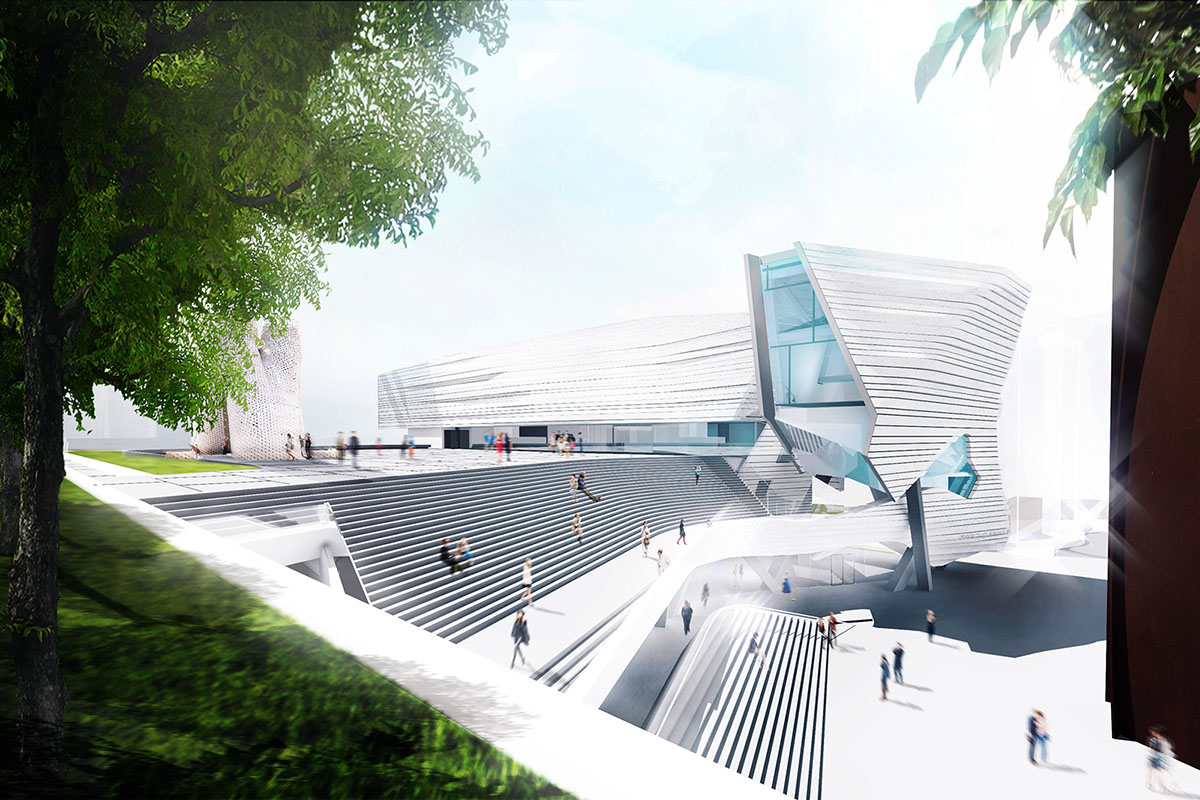
Los Angeles and New York-based firm Morphosis has unveiled its striped design for the new home of the Orange County Museum of Art in California, the fragmented and striped building will be redesigned with an open and engaging urban presence at 3333 Avenue of the Arts, Costa Mesa, California.
The Orange County Museum of Art (OCMA)’s new home will build on the museum’s history of community enrichment and presentation of thought-provoking works of art across a wide range of mediums, by artists of diverse backgrounds. OCMA has closed its former Newport Beach location on June 17, following a celebrated 41-year history at its current location.
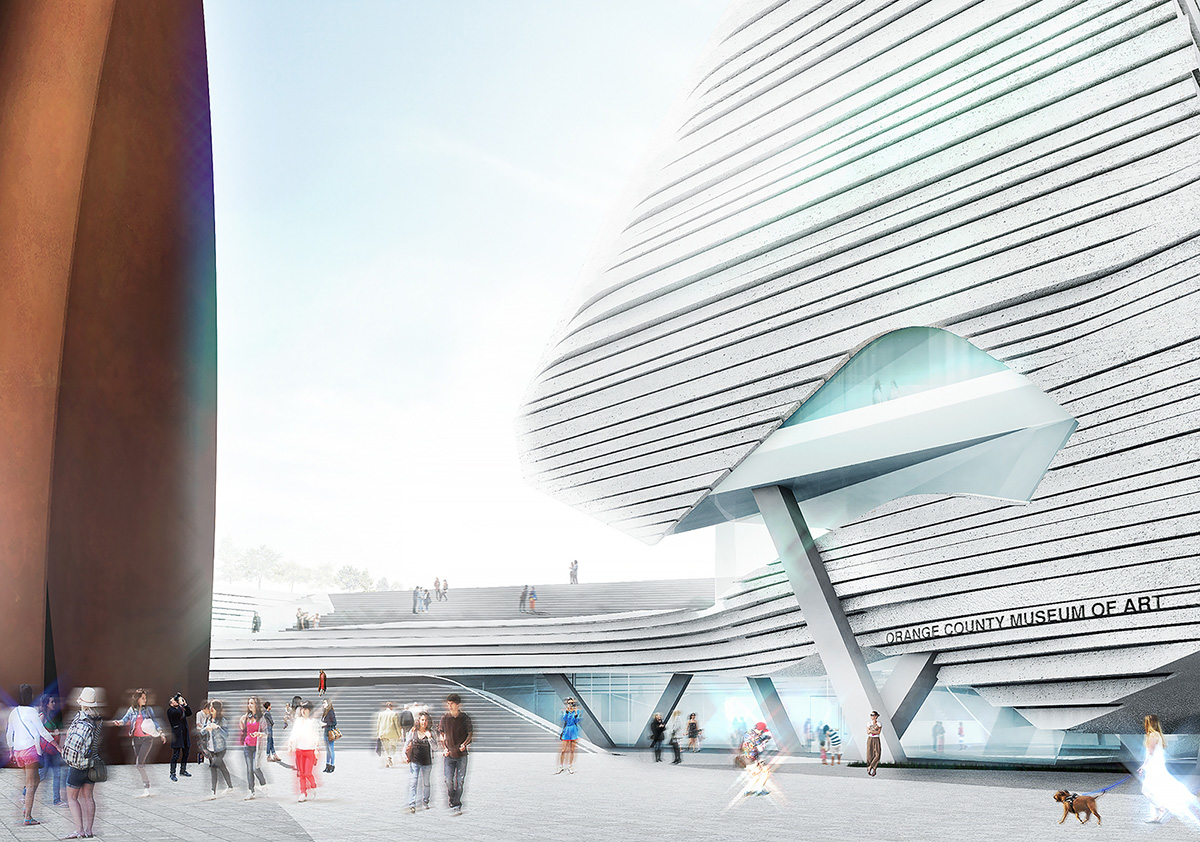
The 4,831-square-metre design scheme will be redeveloped by Morphosis, the global architecture and design firm led by Pritzker Prize-winner Thom Mayne. The new building will approximately 50% more than in the current location—the new 52,000-square-foot museum will allow OCMA to organize major special exhibitions alongside spacious installations from its world-traveled collection.
It will also feature an additional 10,000 square feet for education programs, performances, and public gatherings, and will include administrative offices, a gift shop, and a café.
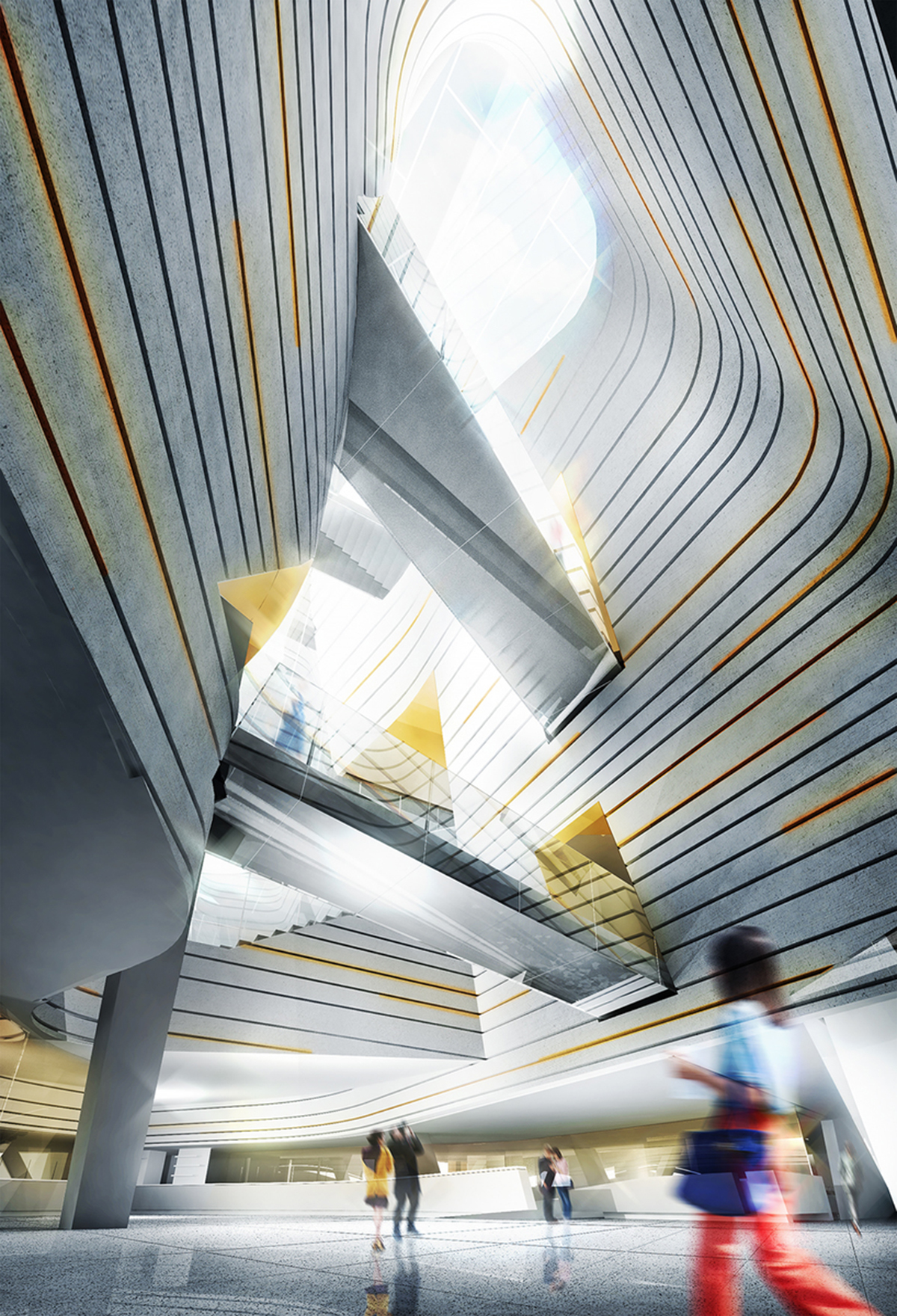
The building will feature flexible exhibition galleries, dedicated space for educational programming, and areas for public gathering. The new building will also provide expanded access to the museum’s permanent collection, which comprises important works of modern and contemporary art from Southern California and the Pacific Rim, and to its world-class special exhibition program.
"The overall design of the building addresses the need for museum space to be both flexible and functional as well as inviting and memorable," said Morphosis in its project description.
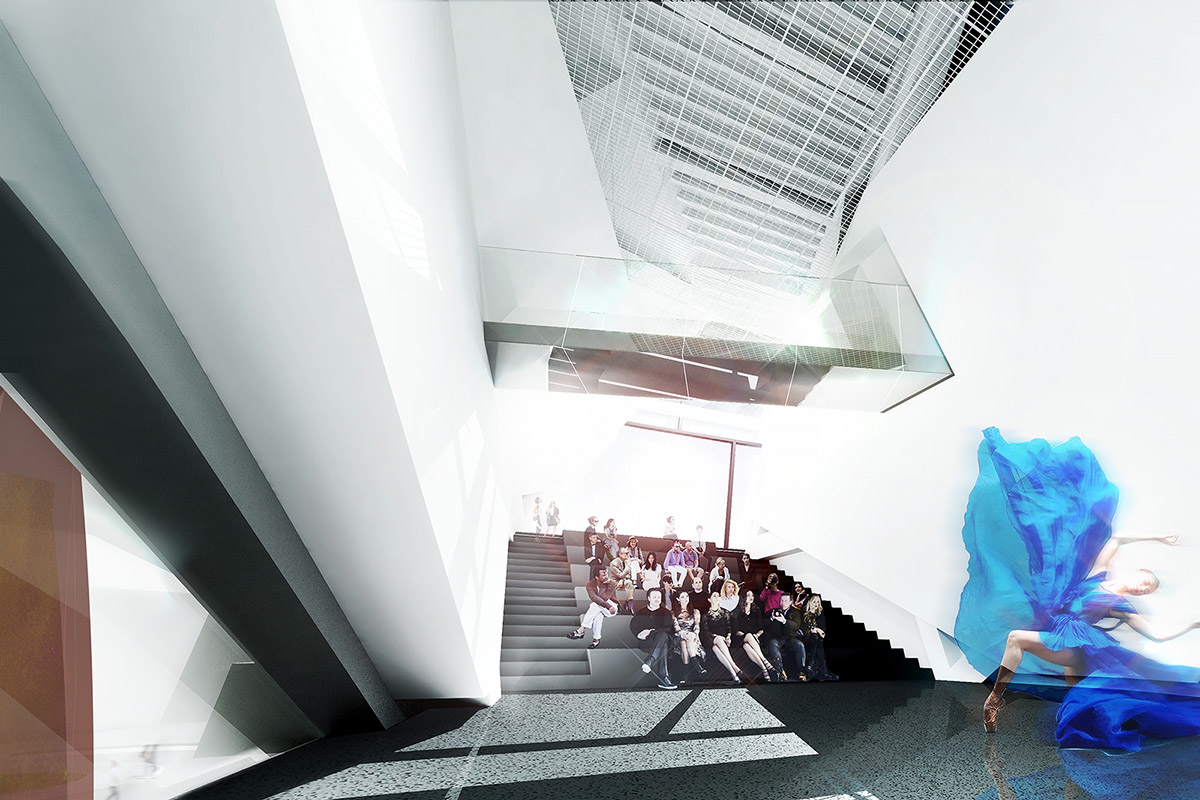
The main floor will be dedicated to reconfigurable open-span exhibition space, complemented by mezzanine, black-box, and jewel-box galleries that can accommodate temporary and permanent collection exhibitions spanning a variety of scales and mediums. The upper level includes administrative areas.
The studio proposes a spacious roof terrace, equivalent in size to 70 percent of the building’s footprint, which will also serve as an extension of the galleries with open-air spaces that can be configured for installations, a sculpture garden, outdoor film screenings, or events.
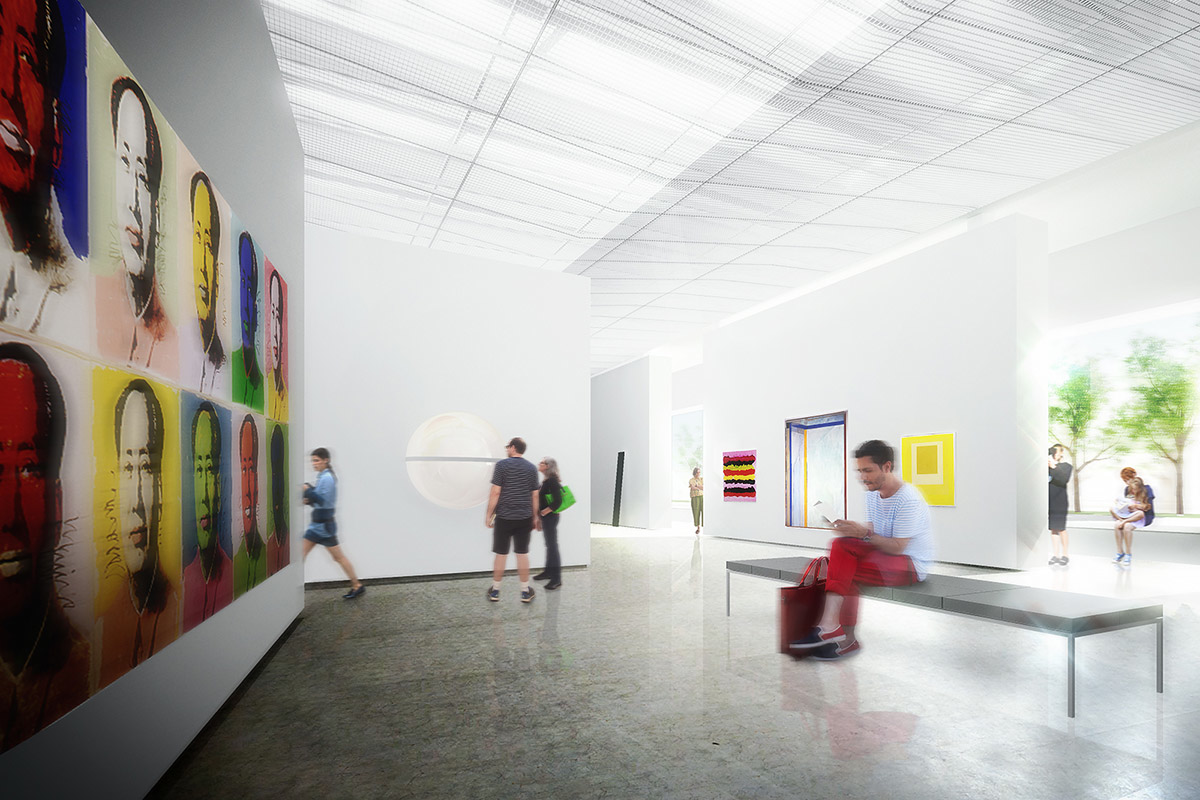
The building will have a sculptural wing stretching out the slope and it will hover over the lobby atrium and create a prominent location for the educational hall, an inspiring, artful, and dynamic architectural space illuminated by a full-height window overlooking the terrace.
"A grand outdoor public stair curves toward the museum’s entry, creating dialogue with Connector, the monumental sculpture by Richard Serra at the heart of Segerstrom Center for the Arts," added the architects.
"Linking the museum to the arts complex’s Argyros Plaza and adjacent performing arts venues, the stair will become an inviting gathering space for pedestrians and visitors, much like the Metropolitan Museum of Art steps in New York City or the Spanish Steps in Rome."
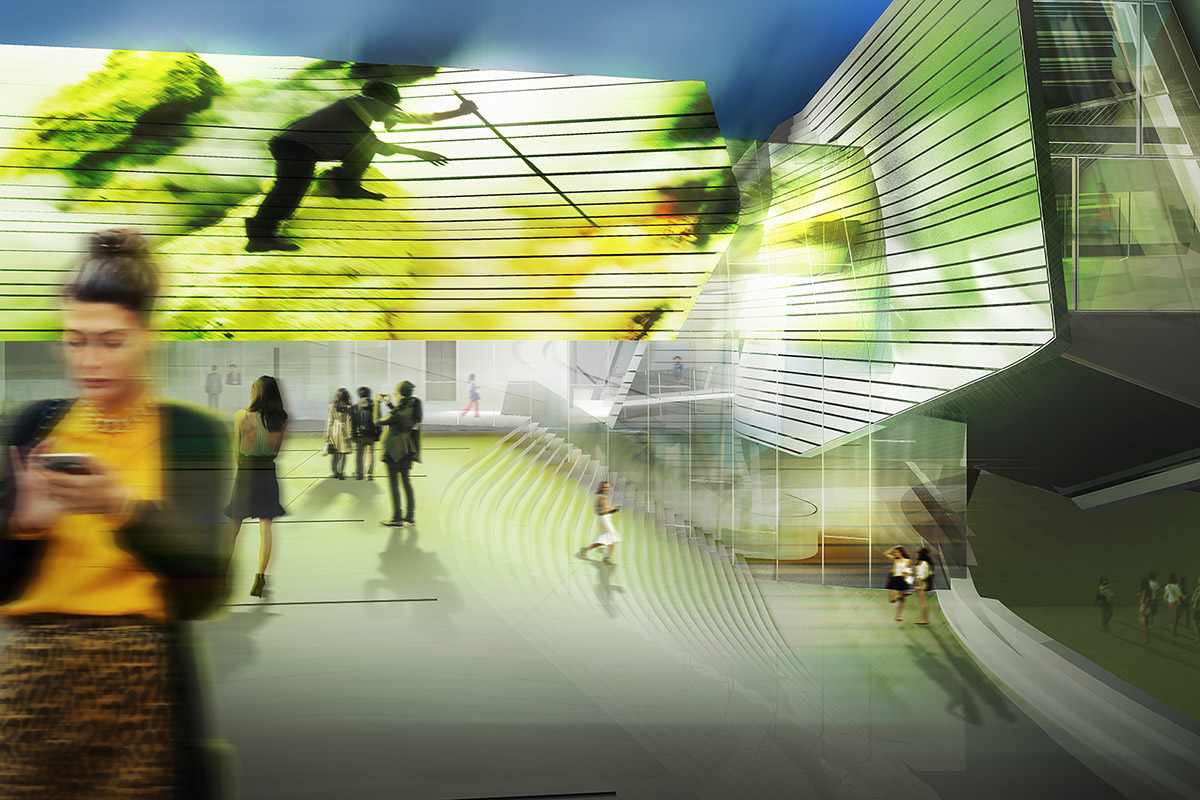
"A high-performance façade of light-colored, undulating bands of metal paneling and glazing creates a distinctive character for the building, playing off the forms and language of neighboring works of architecture."
Morphosis' design strategy choreographs a rich and diverse visitor experience, from approach and entry, to procession through the galleries, and finally, an invitation to linger on the steps, in the café, or in the museum store.
The studio creates a gradient of architectural intensity, from complex forms at the museum’s entry to rectilinear and flexible forms within the galleries, the building is both memorable and striking, while serving primarily as a supportive stage for art.

Combining strong relationship between indoor and outdoor space, the building encourages visitors to immerse themselves in the celebrated climate of southern California, where light, air, and space have influenced generations of artists.
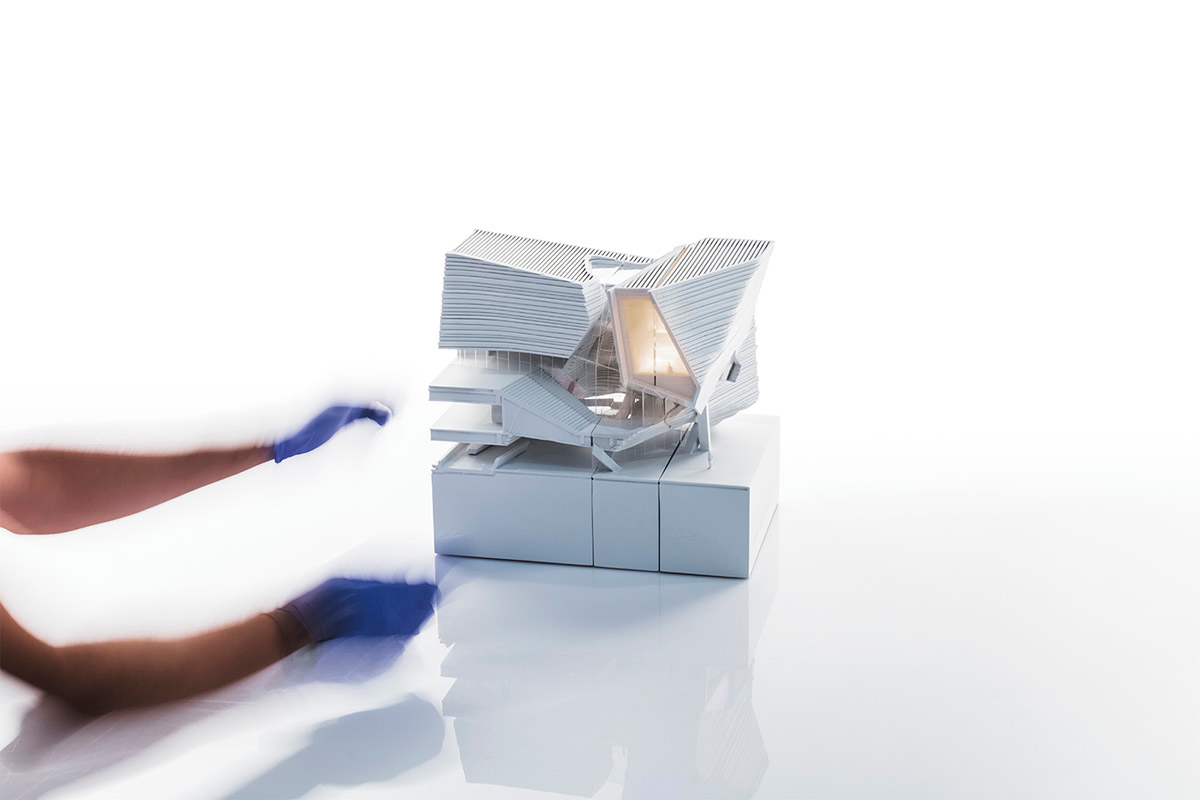
Groundbreaking for the new building will take place in 2019, and it is scheduled to open in 2021.
All images © Morphosis
> via Morphosis
